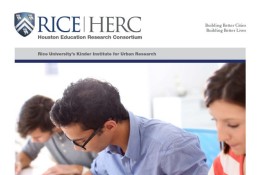Postsecondary readiness broadly refers to how well students are prepared for education, employment or other pathways after high school. Research by the Kinder Institute looks at a variety of factors for postsecondary readiness, including the role of college prep course offerings and course-taking, the availability and access to career and technical education (CTE) programs, school-to-work linkages and the effectiveness of tuition-free programs in increasing college graduation rates.
Low-income students are still being left behind, according to a new assessment of the state’s school accountability system.
















